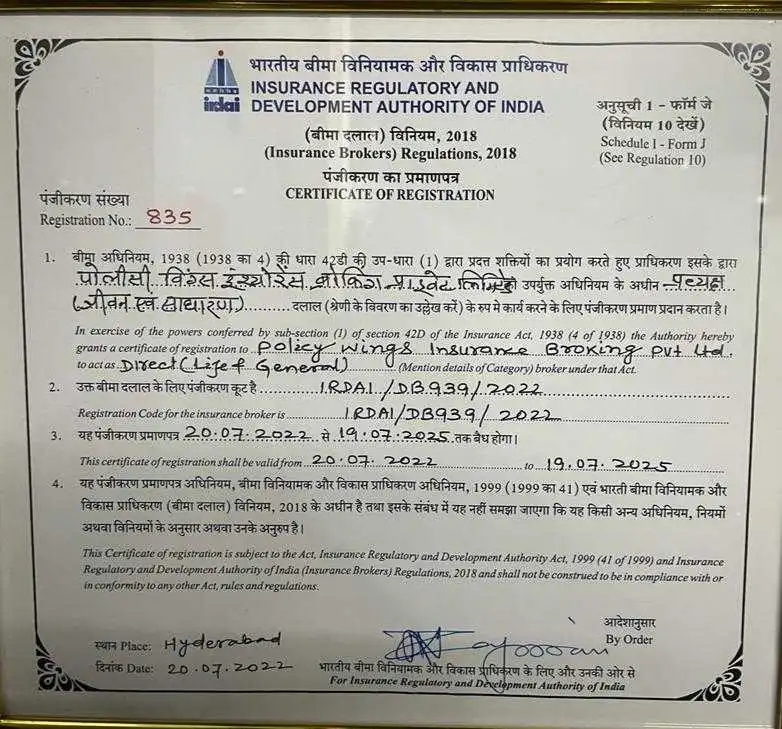Learn Why Commercial Renovation Insurance is Important?

Undertaking a commercial renovation project is a significant investment for any business. Whether renovating an office space, renovating a retail store, or renovating a restaurant, the process can be complex and potentially risky.
An important part of managing these risks is having the right insurance. In this comprehensive guide, we delve into the world of commercial renovation insurance, examining the types of coverage available, the importance of insurance for renovation projects, and how to choose the right policy for your needs. your specific needs.
What is Commercial Renovation Insurance
Commercial renovation insurance is a niche insurance product specifically designed for businesses involved in renovation or remodeling projects. These policies are carefully crafted to address the unique risks and liabilities that often accompany such endeavors.
Let’s dig deeper into the complexities of commercial renovation insurance to gain a comprehensive understanding of its purpose and components.
Property Damage Insurance: Renovation projects can be complex and disruptive, often involving the removal or modification of existing structures. This leaves the property being renovated exposed to various risks, such as fire, theft, vandalism, and even natural disasters. Commercial renovation insurance typically includes coverage for damage or loss to the property. This insurance is called “builder’s risk insurance” or “construction insurance”. It extends protection not only to the building structure but also to materials and equipment located on the project site.
Liability protection: Liability risk is another major concern in renovation projects. Commercial renovation insurance provides protection against claims for bodily injury or property damage that may arise after renovation work.
For example, if a visitor, worker or passerby suffers an injury or property damage directly related to renovations, this insurance will cover medical expenses, legal fees and settlements. there may be. This aspect of the policy is called “general liability insurance.”
Coverage for Contractor Equipment: Remodelling projects rely heavily on specialised equipment and tools. Commercial renovation insurance typically includes coverage for contractor equipment and tools used during the renovation process. If a contractor’s tools are stolen, damaged, or lost on the job site, this insurance ensures that the contractor will be compensated for the cost of repair or replacement.
Worker’s Compensation: If you have employees or subcontractors working on your renovation project, workers’ compensation insurance is essential. It provides coverage for medical expenses and lost wages for workers injured while on duty. Compliance with workers’ compensation laws is often required to ensure that workers are properly protected.
Professional Liability Insurance: In some cases, businesses may hire architects, engineers, or other professionals for their renovation projects. These professionals are held to high standards and any errors or omissions on their part could result in financial loss. Commercial renovation insurance may include professional liability insurance, also known as errors and omissions insurance, to protect you against claims of professional negligence or malpractice by these professionals. perform.
Pollution liability insurance: In rare cases, renovation projects may uncover environmental contaminants such as asbestos or lead. Pollution liability insurance may be included in a commercial renovation policy to cover costs associated with environmental cleanup and pollution-related liability claims.
Types of Coverage
General liability insurance: This is a basic part of commercial renovation insurance. It protects against claims for bodily injury or property damage that may arise during a renovation project.
For example, if a visitor to your construction site is injured after a slip and fall accident, general liability insurance will cover medical expenses and possible legal fees.
Builder’s Risk Insurance: Builder’s risk insurance, also known as construction insurance, provides coverage against damage or loss caused by the property being renovated. This includes the building structure itself as well as on-site materials and equipment. Common risks covered include fire, theft, vandalism, and natural disasters.
Contractor’s Equipment Insurance: This policy specifically covers the contractor’s equipment and tools used during renovations. If a contractor’s tools are stolen or damaged on the job, this insurance will cover repairs or replacements.
Workers’ compensation insurance: If you have employees or subcontractors working on your remodeling project, workers’ compensation insurance is important. It covers medical expenses and lost wages for workers injured on the job. Compliance with workers’ compensation laws is often mandatory.
Professional liability insurance: Also known as errors and omissions insurance, this coverage is essential if you are hiring an architect, engineer, or other professional for a renovation project. It protects against claims of professional negligence or malpractice that result in financial loss.
Pollution liability insurance: In some cases, renovation projects may uncover environmental contaminants such as asbestos or lead. Pollution liability insurance covers costs associated with cleanup and pollution-related liability claims.
The Importance of Commercial Renovation Insurance
Now that we’ve explored the different types of insurance available, let’s look at why commercial renovation insurance is important for your project:
- Renovation projects inherently have risks, such as accidents, property damage or unforeseen structural problems. Insurance provides a safety net, reducing the financial burden on your business in the event of an incident.
- Many jurisdictions require businesses to carry certain types of insurance, such as workers’ compensation insurance. Failure to comply with these regulations may result in fines and legal consequences.
- Renovation projects often require significant investments in labor, materials, and equipment. Insurance protects your financial interests, ensuring that unforeseen events don’t cripple your budget.
- If you work with contractors, subcontractors, or lenders, they may require proof of insurance before committing to your project.
- Having the coverage you need can help you secure your policy and finances. Peace of mind:
- Knowing that you have adequate insurance coverage can give you peace of mind throughout the renovation process. This allows you to focus on project success instead of worrying about potential failures.
Choosing the Right Commercial Renovation Insurance
Choosing the most appropriate commercial renovation insurance policy for your project requires careful consideration. Here’s a step-by-step guide to help you make an informed decision:
Step 1: Assess your project’s unique risks
Every renovation project is unique, as are the risks associated with it. Start by performing a comprehensive risk assessment specific to your project. Consider factors such as project size, location, scope of work, and involvement of third-party experts.
By understanding your project’s risks, you can better tailor your insurance coverage to your project’s specific needs. For example, a renovation project in a flood zone may require additional insurance for flood risks.
Step 2: Find a reputable insurance company
Not all insurance companies provide the same level of expertise and service when it comes to commercial renovation insurance. Research and identify reputable insurance providers with a proven track record in effectively handling renovation requests and providing exceptional customer service.
Look for financially stable suppliers because you want to be assured that they can fulfil their commitments in the event of a disaster. Reading reviews and seeking recommendations from other business owners can help you narrow down your options.
Step 3: Request multiple quotes
Don’t accept the first insurance quote you get. Instead, contact several insurance companies and request quotes tailored to the specific needs of your project. When comparing quotes, consider not only the cost of insurance but also coverage, deductibles, and any exclusions or limitations.
Remember, the cheapest option does not always provide the comprehensive coverage your project needs. Balance cost considerations with the level of protection provided.
Step 4: Customise your policy
Work closely with the insurance company of your choice to customize your policy to meet your project’s unique requirements. Make sure coverage limits are appropriate for the size of your renovation project and that deductibles are reasonable and manageable within your budget.
If your project has special risks not typically covered by standard commercial renovation insurance, discuss options for adding an endorsement or endorsement to your policy to adequately address these concerns. this concern. this risk.
Step 5: Read and understand policy documents
Before finalizing any insurance contract, take the time to carefully review the policy documents. Pay special attention to any exclusions, limitations, or conditions that may affect your coverage. Make sure you understand what is and is not included in your policy.
If any aspect of the policy is unclear, don’t hesitate to ask your insurer or insurance professional for clarification. Knowing your insurance coverage is essential to making an informed decision.
Step 6: Consult an insurance expert
If you’re not sure what type of insurance is right for your renovation project, consider consulting with an adjuster or insurance broker. These experts can provide valuable insights and recommendations based on their expertise in the field.
An insurance professional can help you navigate the complexities of commercial renovation insurance, ensuring you have the most appropriate coverage to protect your project and your financial interests.
Wrapping Up
Commercial renovation insurance is an essential element of any renovation project. It provides protection against a range of potential risks, from workplace accidents to property damage and liability.
By understanding the types of insurance available, recognizing the importance of insurance in minimizing risk, and carefully choosing the right policy, you can protect your investment and ensure your progress.
A smoother and safer renovation. Remember, when it comes to insurance, being proactive and knowledgeable is your best strategy for success.
Related Posts
FAQs
Commercial Renovation Insurance typically covers property damage, liability protection, coverage for contractor equipment, workers’ compensation, professional liability insurance, and, in some cases, pollution liability insurance.
Having Commercial Renovation Insurance is crucial because renovation projects come with inherent risks that can result in significant financial losses. Insurance provides a safety net, ensuring that unexpected incidents don’t disrupt your business or budget.
Yes, many jurisdictions require businesses to carry certain types of insurance, such as workers’ compensation insurance, to comply with legal regulations. Failure to comply may lead to fines and legal consequences.
To determine the right amount of coverage, assess your project’s unique risks, budget, and financial needs. Consider factors such as project size, location, scope of work, and involvement of third-party experts. Consult with an insurance expert if needed.
Yes, you can customize your policy to meet your project’s unique needs. Work closely with the insurance company to adjust coverage limits, and deductibles, and add endorsements or riders if your project has special risks not covered by standard policies.












